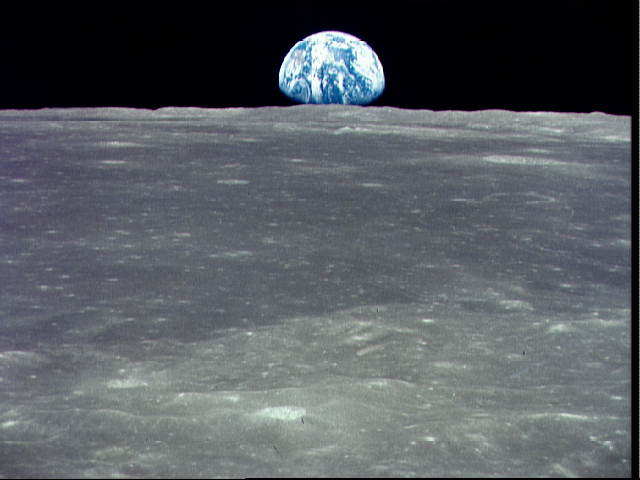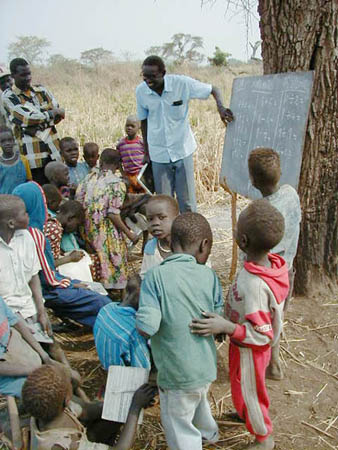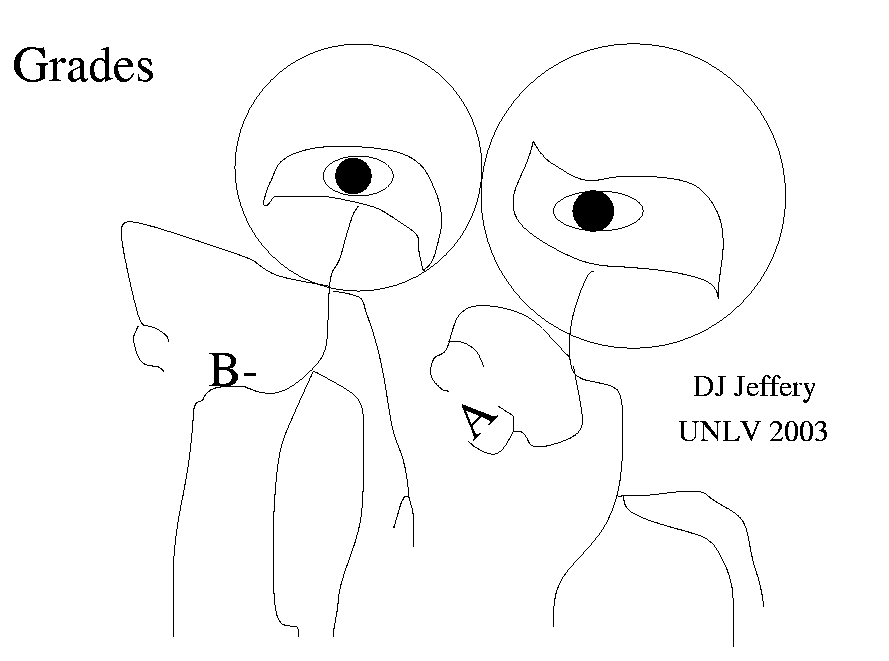
Core Science 221, Section 1, module 2, 3 cr: University of Idaho: 2009 Fall
The course motto: very reassuring I think.
Sections
This syllabus is subject to change at the discretion of the instructor. Any changes will be announced in class as well as made on this page.
which is the page you are maybe viewing right now.
This page is the preliminary syllabus and includes
Syllabus Items
and
Tentative Schedule.
This page is/will be/may be linked from the official physics department
course web page.
For this course, online lectures constitute all the readings: see
Tentative Schedule below.
The title of this course is Energy in Physics and Society.
It is a core discovery course of the
Core Curriculum with online
official description.
The course proposal (slightly edited) gave the following description:
The course is a bit of hybrid with the DOUBLE FOCUS of energy in
physics and energy in society: the two foci are obviously related, but
each one extends off into realms that relate to each other only in certain
senses.
The choice of topics is still evolving.
But one must point out there is lots of relevance:
We could do without the concepts in a material sense---but only if we wished to live
in the 17th century.
And spiritually we need them too.
Energy and physics as whole helps understanding eternity and infinity.
And understanding our home.
How much math is not yet fully determined.
Now we've all heard horror stories
about professors who just
lecture from Wikipedia.
Caption: "Film poster for the 1932 film
TheMummy."
Credit: ``Employee(s) of Universal Pictures, attributed to Karoly Grosz.''
Image linked to Wikipedia.
Public domain at least in USA.
Well be prepared to be
horrified---a bit anyway.
I can duke it out with one or two
Wikipedia contributors,
but Wikipedia
is a legion
and I just can't beat it for material and figures.
Resistance is futile (as the
the Borg used to say): usually high-grade information just a
keyword
and a mouse click away.
If you try comparing
Wikipedia articles on
energy resource matters and the online resources of the
Department of Energy (DOE) or
their subsidiary the Energy Information Administration,
there is a whole mindset of difference.
Wikipedia
gives high-grade summary information.
DOE may give such
information, but it is well hidden.
Mostly, it seems at DOE, one
finds very detailed information that is useless to the average
person and likely of very ephemeral value even to experts in those details: e.g.,
The Etruscan shrew
is the smallest known living mammal.
Credit:
Wikipedia contributor.
According to
Wikipedia
permission is granted to copy, distribute and/or modify this document
under the terms of the
GNU Free Documentation License, Version 1.2 or any later version.
Download site:
Wikipedia: Image:Etruscanpygmyshrew.JPG.
I usually won't allow time for that.
The module lectures are online on
Tentative Schedule below.
Students are usually expected to download the lectures before class.
Things are different in other parts of the world.
Caption: "Outdoor classroom in Northern
Bahr al Ghazal, Southern Sudan in 2002".
Credit: US Government.
Image linked to Wikipedia.
Public domain at least in USA.
Some don't exist yet and all of them are subject to updating.
The online materials (mine or
Wikipedia)
are a lecturing tool.
Students
will have to get used to not reading most of the on-screen words.
For the lectures to be complete, there are more words than you can read---and so
don't read them all or be mesmerized by them---resist, RESIST.
We will focus on keywords and images when using the BIG SCREEN.
Attendance counts for 5 % of the module grade.
But there probably won't be quizzes everyday.
The quizzes are intended to be easy.
The quizzes count for 5 % of the module grade.
They are/will be posted along with their due dates
online on the
Tentative Schedule below.
The due dates are subject to adjustment during the semester.
Such adjustments will be announced in class as well as on the
Tentative Schedule.
All multiple-choise questions will be marked, but any full-answer questions may or may not be.
There probably won't any full-answer questions.
The solutions will be posted on the
Tentative Schedule eventually after the due date.
Homeworks will count 30 % or more or less of the module grade.
All homeworks count the same no matter what they are marked out of.
Handed in homeworks should be stapled at an upper corner if they have more than
one page.
Since I will be using a lot of
multiple-choice
questions which may reduce all/some homeworks to hand-ins of an answer table.
username and password are needed to access the homeworks and solutions.
The instuctor will provide those right now.
It must be a book, not an article.
But don't buy a book. The
UI Library is full of suitable
books.
Caption: Artist's conception of the Library of Alexandria.
Just what it's like in the UI Library---we're
a little behind the times.
Credit: Unidentified artist.
Image linked to Wikipedia.
Public domain at least in USA.
The book topic is very open.
The book could be on a grand theme (e.g., the whole energy future) or
a modest one (e.g., installing solar panels on a roof).
The instructor would like to see a diversity of book topics.
The student does NOT have to read the whole book, but must read its
introduction and conclusion and look at any other parts the student judges to be important.
The essay is meant to be a review, NOT a summary.
A review should answer certain questions:
But remember any summary of the contents of the book should be comparatively brief and it
is best to integrate summary points smoothly into the
main argument of the essay.
To some degree this can be judged by internal criteria:
does the author present evidence and give arguments?
Obviously, a popular book can't give detailed evidence
or arguments, but one can at least ask oneself do the
arguments and evidence presented really support the conclusions
at all and are they proportionate to the conclusions---as
Carl Sagan
used to say ``Extraordinary claims require extraordinary evidence.''
Caption: Carl Sagan (1934--1996)
with a model of the Viking lander".
Carl showing off his evidence for UFOs.
Credit: NASA.
Image linked to Wikipedia.
Public domain at least in USA.
There are also external sources to judge the authority of a book by:
other reviews in magazines or at
Amazon books,
Wikipedia, other books, the
reviewer's own expertise.
The reviewer must try to consult some outside source.
The student should also consider the reputation and standing of the author
and publisher.
For example, a book published by Cambridge University Press, may not
be more authoritative than one published by a small, unknown publishing house, but
it's not likely to be junk.
What's the book's year of publication?
Books on issues of energy and society date very quickly.
An excellent book from 1970 on solar power will tell you some useful things, but
it's not a high-grade source anymore---authoritativeness of some kinds of books inevitably
declines with time.
The student should try to be authoritative too---what you've decided, why you've decided it.
The point of this exercise is to learn something from the book and to
develop critical judgment about sources.
In the modern age, we are inundated with sources of information.
Some are very bad, some are outstanding.
But most fall in between in the so-so category.
Frankly, time is limited and on any issue an ideal is to zoom in immediately on the
authoritative sources at the level you are prepared to deal with.
Try to identify the author's philosophy.
Caption: "English: John Trumbull's painting, Declaration of Independence, depicting the five-man
drafting committee of the Declaration of Independence presenting their work to the Congress.
The painting can be found on the back of the U.S. $2 bill. The original hangs in the US Capitol rotunda."
Credit: John Trumbull (1756--1843).
Image linked to Wikipedia.
Public domain at least in USA.
Most authors of popular books on energy and society have some vision
for the future, some program they support.
What is it?
The essay could be shorter than 2 pages, but the essay needs some room to develop its theme
and a level of authoritativeness.
Total marks possible: 12
The essay must be the student's own work aside from short quotes.
As is always implicitly the case, your name on the work is your word of
honor that it is your own work.
on the other hand
this course is supposed to have a collaborative and participation component
which is a real challenge with up to 40 students and an auditorium classroom.
So the class will divide into discussion groups of 2 to 4 person---you can
choose your friends.
The groups can discuss the topics of the essay (or anything else)
in the course.
The members of the group will read the other members essays before hand-in
and give the author
feedback: suggest minor corrections and/or
constructive criticism.
This is entirely the group's own affair.
I will ask for the names of the group members on the quiz on the second
day of the course---it's a marked question.
The essay in is due a week after the
Energy and Physics Module ends: i.e.,
it's due on .
I will accept late essays, but there will be a penalty.
The questions might be tweeked a bit.
The in-class exam may (or may not) consist of all multiple-choice questions.
NO scantrons are needed.
Cell phones MUST be turned off and be out of sight.
Make-up exams are possible, but students must ask for them
promptly and avoid knowing anything about given exams.
There is no final exam as should be indicated---but apparently is not---on
the online overall course syllabus.
There are absolutely NO extra credits.
The module instructors will each assign
GPA-like grades
to a student and take the average to determine
the final letter grade for the course.
This module instructor will assign the GPA-like grade following the
UI catalog---which allow instructors some freedom of
interpretation.
The instructor uses a curve to automatically
assign letter grades during the semester---if there are enough
students to make a curve meaningful---if there arn't the instructor
just decides on letter grades.
There is NO fixed scale.
The curve average is set to a GPA of about 2.7.
Remember you can be curved down as well as up.
The final module grades are decided on by the module instructor directly---the curve
is NOT used, except as a guide.
Students can always ask the module instructor for their current
mark record and letter grades in the module. Queries by email
are probably best for this.
The instructor of record will submit midterm grades and final grades
as scheduled in the
academic calendar.
Remember that after an instructor has submitted FINAL GRADES,
any adjustments (except for purely clerical errors) are
NOT allowed by university policy.
http://physics.nhn.ou.edu/~jeffery/course/c_energy/energy.html
Energy is a scientific concept of central importance.
Energy is also important in modern society and the world is facing an energy problem.
This coursee will discuss energy from the perspective of physics
and will also consider the role of energy in society.
Energy and physics as a whole (along with a whole lot else) sustains
society: e.g., in
electrical power grid.
There is some math in this course and I will be teaching some of the
necessary tricks.
 Eternity and infinity from our small platform.
Eternity and infinity from our small platform.
 Earthrise from Apollo 11, 1969jul16.
Credit:
NASA.
Earthrise from Apollo 11, 1969jul16.
Credit:
NASA.

the weekly
Gasoline and Diesel Fuel Update.
But, of course, Wikipedia
is an encyclopedia:

The students can write supplementary notes on the printed lectures if needed.
But wait till the instructor
says the lectures are ready.

Updating is a neverending process.
Occasionally detailed notes might be needed if the lectures arn't ready---but I don't think
that will happen anymore.

The essay should be NO longer than 2 pages with single spacing and 12-point
font---note 2 pages, not 2 sheets.
And what's left out?
Authors can just neglect to mention contrary evidence and arguments.


A few pedestrian sentences is NOT enough.
The approximate marking scheme for the essay will be:
For models for the essay, the students could read the book reviews in, e.g.,
Nature or
Science.
Exam Date Solutions (posted post-exam)
_________________________________________________________________________________
Exam 1 Oct29 R Module 2 Exam solutions
_________________________________________________________________________________
About 50 % to 70 % or more of the exam questions on the exam
will be drawn from the homeworks.
attendance 5 % 1 drop
quizzes 5 % 1 drop
homeworks 30 % or more or less no drop
essay 15 % or more or less no drop
in-class exam 45 % or more or less no drop
If a student has some special problem like illness, then there
will be some accommodation.
See
Policy on Grades from the
UI Catalog.
Note that E-6 states that grade changes after instructor submission are
only allowed for clerical corrections, not for reweighting or additional work.
There is another avenue for grade emendation:
the Academic
Hearing Board (1640.02 C-4) can have a say on grades---but it's not
very promising.
The instructor of record for the course is Prof. David McIlroy who teaches the 1st module.
 Beware of aliens bearing grades.
Beware of aliens bearing grades.
No dated schedule has ever been adhered to by the instructor.
So there are no dates in this tentative schedule for the course module.
We have 5 weeks and 10 lecture periods.
The numbered lectures below correspond to topics, not lecture periods.
Homework 6: Due: .
Solutions 6:
Homework 7: Due ?.
Solutions 7:
Homework 8: Due ?.
Solutions 8: